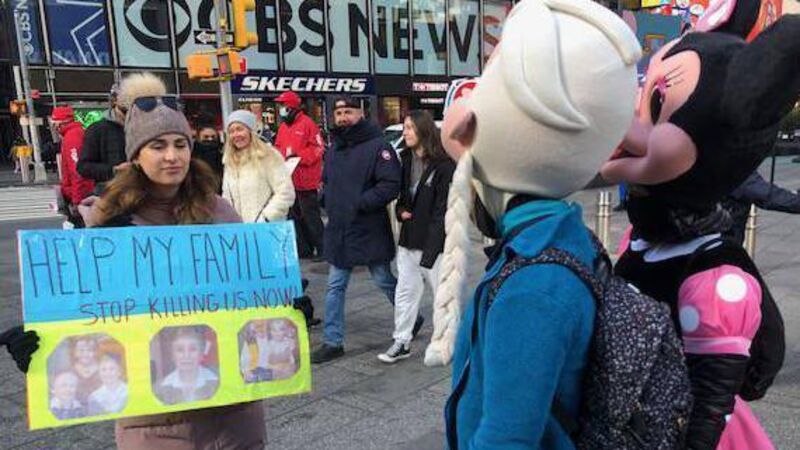Maeve Higgins: New Yorkers unite to protest invasion of Ukraine

Among the family photos on Katya Bilonog's poster at last Saturday's protest in New York is her grandmother, Nina, who had Covid and did not manage to flee Kyiv. 'They don't know if death is imminent,' Katya says. Picture: Maeve Higgins
There are enough Ukrainians living in New York City to make up a small city of their own, over 150,000 of them. But they are not on their own; they're here amongst the other 8m New Yorkers who call this city home, all of us working, living, and loving, if not together, in tandem.
Nowhere was this solidarity more evident than in a bright and cold Times Square on Saturday afternoon. Spanish-speaking women dressed as Disney characters murmured their sympathies to Katya Bilonog, a US citizen born in Kyiv, Ukraine. Tears jumped to her eyes as she explained the photo she was holding.















